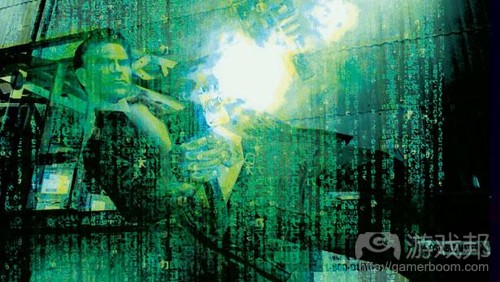阐述游戏想法与电影之间的渊源和区别
作者:James Leach
游戏想法源于何处呢?你不能将游戏视同电影,因为所有电影之间的相似度要高于游戏。但电影只是个故事,而游戏是种体验(游戏邦注:行业专栏作家James Leach曾指出,机制才是主导,故事只能居于次席)。
很少见到单个人声称自己有个游戏想法,而那些只有架空概念的人也往往不会受到他人的注意。不久之前,有个粉丝在某个展会上拦住了Peter Molyneux,告诉他说自己有个很棒的游戏想法。Molyneux回答道,他自己也有个很棒的绘画想法。从某种程度上来说,这是个很棒的回应,想法几乎是毫无价值的。你可以在早餐之前的那段时间内想出6个令人惊奇的游戏叙事概念。
新游戏开发背后的想法往往以机制为基础。看看《小小大星球》,这款游戏并没有具体的内容,但是这个令人满意的世界中可以玩出许多种故事和体验。
行业内的创意文案通常会对如何在游戏开发后期添加故事、情节和叙事结构大感困惑。但是如果游戏是围绕玩家能够做的事情来构建,那么这种情况时常会出现。尽管如此,如果故事的插入时间不算过晚,那么就不会产生问题。虽然这不会导致故事在开发过程中不断改变,但是在游戏中,故事并不是最为重要的。
那么,如果机制和游戏玩法是最为重要的话,为何会出现如此多类似于电影的游戏呢?项目开发启动之后,游戏设计通常也总是会从电影和电视中寻求灵感。如果每个程序员和设计师都会看科幻片,每个艺术师都很喜欢漫画和超级英雄的话,这种情况是很正常的。开发者全身心投入到自己最喜欢的题材中,在第二天的工作中就会决定执行他们前天晚上看到的东西,这已经是个传统。
事实证明,这种做法并没有什么不妥。如果我们没有看过《黑客帝国》的话,那么《英雄本色》的“子弹时间”(游戏邦注:这是指游戏中的“慢动作”,玩家发动攻击时候,时间会慢下来,方便玩家做出各种动作和瞄准)。如何能够发挥作用?如果没有詹姆斯·卡梅隆电影《异形》的话,我们还会觉得《星际争霸》中的女宇航员那么酷吗?受《异形》影响的游戏非常多。如果玩家一开始就能够理解其中的世界,那么他们也会更容易融入游戏。通过电影,所有人都知道了爆炸、海啸和火球,所以我们在相同的起跑线上。
现在,像半兽人之类的元素已经为人们所共知,游戏已经不需要对它们进行解释。就像瞄准镜或激光一样,我们对此类的东西完全熟悉。但是,这类熟悉也会带来问题。
首先,游戏需要处理其中涉及的正义性问题。其次,事情有其一定的年份。讽刺的是,想法越具有原创性,就越不容易为人们所接受。之前提到的“子弹时间”便是个例子。第三,借鉴概念和单纯的抄袭之间有明确的界限。如果Lara Croft是个戴着帽子的中年男人,那么情况可能就会有所不同了。
借鉴自电影的不只是武器和角色,电影术和情节也是如此。比如,过场动画就需要依附于电影原则。同样,情节和故事也通常会追踪三幕结构和主人公的旅程。这些规则之所以存在,是因为它们能够产生作用。当然,某些很棒的电影会改变甚至打破这些规则,并利用这种做法体现价值。但是,这种事情不会在游戏中发生,原因有两点:首先,精巧的故事讲述和情节操控不可能将普通游戏转变成游戏巨作。记住,游戏的侧重点不是故事。其次,游戏不只是线性化的体验。
随着游戏越来越像电影,它们逐渐模仿并有可能被电影惯例所牵绊。你只能被已经存在的东西所影响,所以你总是会慢一拍。当新技术在3D电影中显现时,你可以将其运用到游戏中。或许这会被称为抄袭,但是你需要做的就是进行模仿,你可以将其称为对电影的致敬。就像最近的游戏《黑色洛城》一样自豪地庆祝其上世纪40和50年代的电影鼻祖。
有时我们得到的是开发者想要制作的游戏,有时游戏或许是他们想要制作的电影。如果能够取得成功固然好,可以算是锦上添花。但是如果故事、主题和游戏玩法无法恰当配合的话,那么游戏就将面临失败的危险。(本文为游戏邦/gamerboom.com编译,如需转载请联系:游戏邦)
Opinion: Where do game ideas come from?
James Leach
Where do the ideas for games come from? Well, for a start they don’t usually get thrown into the ring as one-line pitches. You can do that with movies because movies – all movies – are more similar to each other than games are. A movie is just a story; a game is an experience.
Rarely can one person alone claim to have come up with a game idea – and people who have nothing more than an overarching concept are not going to get listened to. Not long ago, a fan collared Peter Molyneux at a show and told him that they had a great idea for a game. Molyneux replied that he himself had a great idea for a painting. It was a good answer in some respects – ideas are worth practically nothing. You can think up six astonishing game narrative concepts before breakfast.
No, the ideas behind the creation of new games are so often based in the mechanics. The place to start is a new and satisfying way of doing things. Look at LittleBigPlanet: there’s a game that’s not actually about anything. But it’s a fulfilling world in which any number of stories and experiences can be played out.
Creative writers in the industry often wail about how stories, plot and narrative structure are added to games later in their construction. But if games are thought up and created around cool things the player can do, that’s always going to be the case. It’d be nice if it wasn’t too late, though. And didn’t change. All the time. But these are games – telling the story doesn’t come first.
So if mechanics and gameplay are king, why do so many games seem to be like films? Once development has started, game design often borrows, and has always borrowed, from film and TV. How could it not, when every programmer and designer watches sci-fi, and every artist is in love with comic books and superheroes? There’s a long-distinguished tradition of developers immersing themselves in their favourite genres and rocking up at the crack of ten the next morning, determined to implement what they saw the night before.
And arguably there’s little wrong with this. It’s can be a useful shorthand. Would Max Payne’s bullet time have worked if we hadn’t seen The Matrix? Would StarCraft’s wisecracking marines and female pilots have been as cool without James Cameron’s Aliens? Would Gears Of War have worked as well? And grab a pen and list the games influenced by Giger. You may write on both sides of the paper. If the player understands the world from the outset, it makes it so much easier for them to get into the game. Everybody knows about explosions and shockwaves and fireballs from films, so we’re all on the same page.
Nowadays orcs, mech suits and warp jumps are public domain. They don’t need explaining. Like telescopic sights or lasers, we’re totally au fait with such things. You could call each a sci-fi convention if, er, that wasn’t something else. Such familiarity becomes a problem, though.
First, the game has to do the reference justice. Second, things date. Ironically, the more original an idea, the more likely it is to look passé at a later point. The aforementioned bullet time is a prime example. And third, there’s a fine line between borrowing cool concepts and simply copying. If Lara Croft had been a middle-aged bloke in a hat, things would have gone very differently for her creators.
It’s not just weapons and characters that draw on film. The universal rules of cinematography and plot do so as well – they have to. Cutscenes, for example, need to adhere to filmic principles. Similarly, plots and story also usually track the three-act structure and the Hero’s Journey. These rules exist because they work. Of course, some of the best movie-making bends or even breaks these rules and makes a virtue of doing so. This doesn’t happen in games, though, for two reasons: first, clever storytelling and plot manipulation won’t turn a poor or even a mediocre game into a masterpiece. Games are not about storytelling, remember. And second, games are far more linear experiences. Progression is everything, so you’re largely stuck with moving from one bit to the next.
As games look and feel more like movies, they increasingly ape – and run the risk of being stifled by – movie convention. You can only be influenced by things that already exist, so you’re always one step behind. When the new set-pieces start emerging in 3D film, as they surely will, you can bet they’ll be giving kids headaches on a 3DS near you soon afterwards. It could be called copying, it could be simply keeping sensibly to the convention. Hey, go the whole hog, imitate something enough and you can call it a homage. The up-to-the-minute LA Noire celebrates its ’40s and ’50s movie heritage with pride.
Sometimes we get the games the developers want to make. Sometimes the games may be the films they want to make. If it works, it works, though. And arguably it’s the icing on the cake. But I’m sure that if story, themes and gameplay fail to work together well enough, we keep our wallets closed. Psychonauts, anyone? (Source: next-gen)
下一篇:阐述如何拯救行业中的冒险题材游戏








































 闽公网安备35020302001549号
闽公网安备35020302001549号